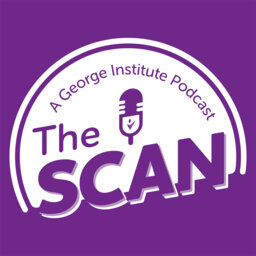
The Scan
The Scan podcast from The George Institute for Global Health explores the latest research, emerging evidence, and crucial progress towards improving health all over the world. If you’re a medical professional, work in research, or are just passionate about global health and how science can improve people’s lives, then this is the podcast for you. For more, find us on social media with #TheScanPod…Social links:
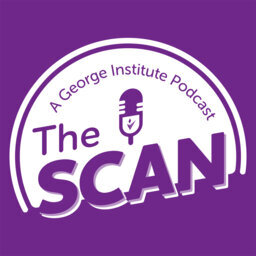
From Numbers to Narratives - Why Stories Matter in Global Health Research
In this episode, host Sarah Iqbal explores the role of stories in global health research through the context of work of the NIHR Global Health Research Centre for Non-Communicable Diseases and Environmental Change. While data and numbers can show us what is happening, they don’t always reveal why. …
13:16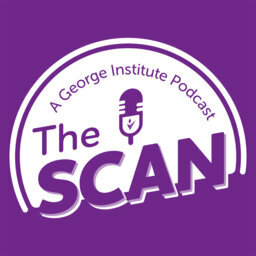
Ubuntu Reflections 2 - Unpacking barriers and facilitators to cross-cultural sense making for building equitable health research partnerships
In this episode, Dr Deepika Saluja speak with Dr Kefilath Bello about how impactful research and research partnership requires an intentional sense-making process that connects and respects diverse cultural contexts. Kefi highlights through examples, that the willingness to engage with communities …
29:45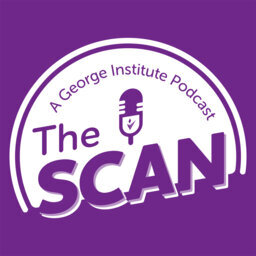
Ubuntu Reflections 1 - Research Partnerships: Gatekeepers, Champions, and the Allure of Going Rogue
In this episode, Dr Kenneth Yakubuspeaks with Dr Seye Abimbola to explore the everyday dynamics of building an equitable research partnership in Africa. Seye outlines different characteristics of research partnerships, and unpack the practical challenges around being a champion, along with the lang…
25:55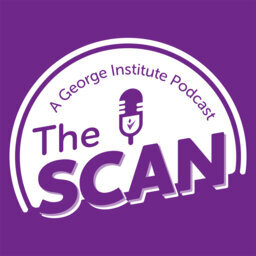
Beyond the Body - When Tax Becomes a Tool of Abuse - Unpacking Economic Abuse and Financial Control
Series: Beyond the Body: Women’s wellbeing- science, equity & impact In this powerful episode, host Professor Amanda Henry is joined by co-host Associate Professor Mehera San Roque and guest Associate Professor Ann Kayis-Kumar to explore how economic abuse — a form of coercive control — plays out …
19:22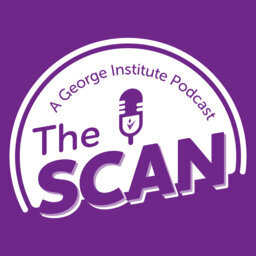
Beyond the Body: Caring & Careers - The hidden load of carers
Series: Beyond the Body: Women’s wellbeing- science, equity & impact In this episode, host Professor Amanda Henry speaks with Associate Professor Lizzie Muller about the often invisible world of carers — who they are, what they do, and why care work remains a deeply gendered issue. Drawing on pers…
18:40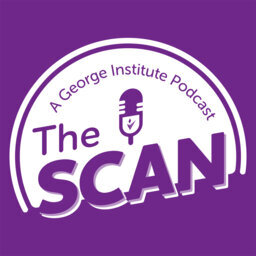
Beyond the Body: Not One-Size-Fits-All - How Sex and Gender shape our health
Series: Beyond the Body: Women’s wellbeing- science, equity & impact In this first episode, host Professor Amanda Henry is joined by Professor Bronwyn Graham, Director of the National Centre for Sex and Gender Equity in Health and Medicine, to explore why sex and gender matter in health and medica…
17:10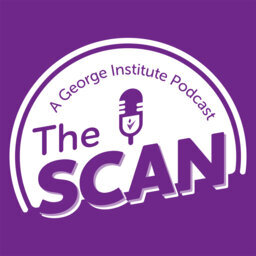
Is the Hypertension Polypill the breakthrough we need for global blood pressure control?
Description: This episode of The Scan features Professor Alta Schutte and Professor Anthony Rodgers discussing one of the world’s biggest health challenges, and a potentially life changing new solution. Around 1.3 billion people live with hypertension (high blood pressure); most live in low- and mi…
17:14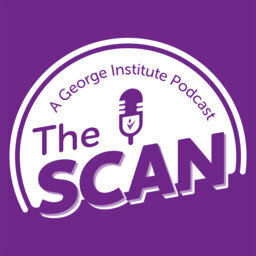
Back pain treatment: How do we decide when – or if – to intervene?
Back pain tops the charts as the world's leading cause of pain and disability. But do we really know which treatments work? We interview esteemed spinal neurosurgeon Dr Ralph Mobbs, principal investigator of the SUcceSS study, run by Professor Manuela Ferreira and the Musculoskeletal research team …
18:33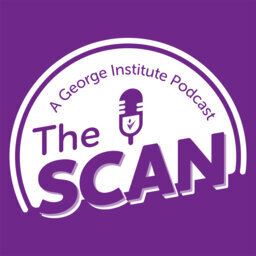
From chronic back pain to arthritis – how can we transform patient care and why is early collaboration with clinicians essential?
In this episode of we’re delving into musculoskeletal research. From chronic back pain to arthritis, these conditions disrupt lives and limit mobility, impacting millions globally. Our guest, Professor Manuela Ferreira, a leading expert, sheds light on groundbreaking evidence-based treatments, from…
10:48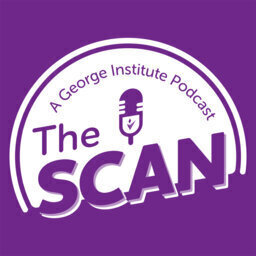
How can we measure carbon footprint of health care and research?
In this bitesize episode we speak with researcher Benjamin Talbot about measuring the carbon footprint of health care and research. Ben demonstrates how emissions can be measured and encourages everyone to keep the planet and protection of the planet at the forefront of our minds and in what we're …
07:15
 The Scan
The Scan